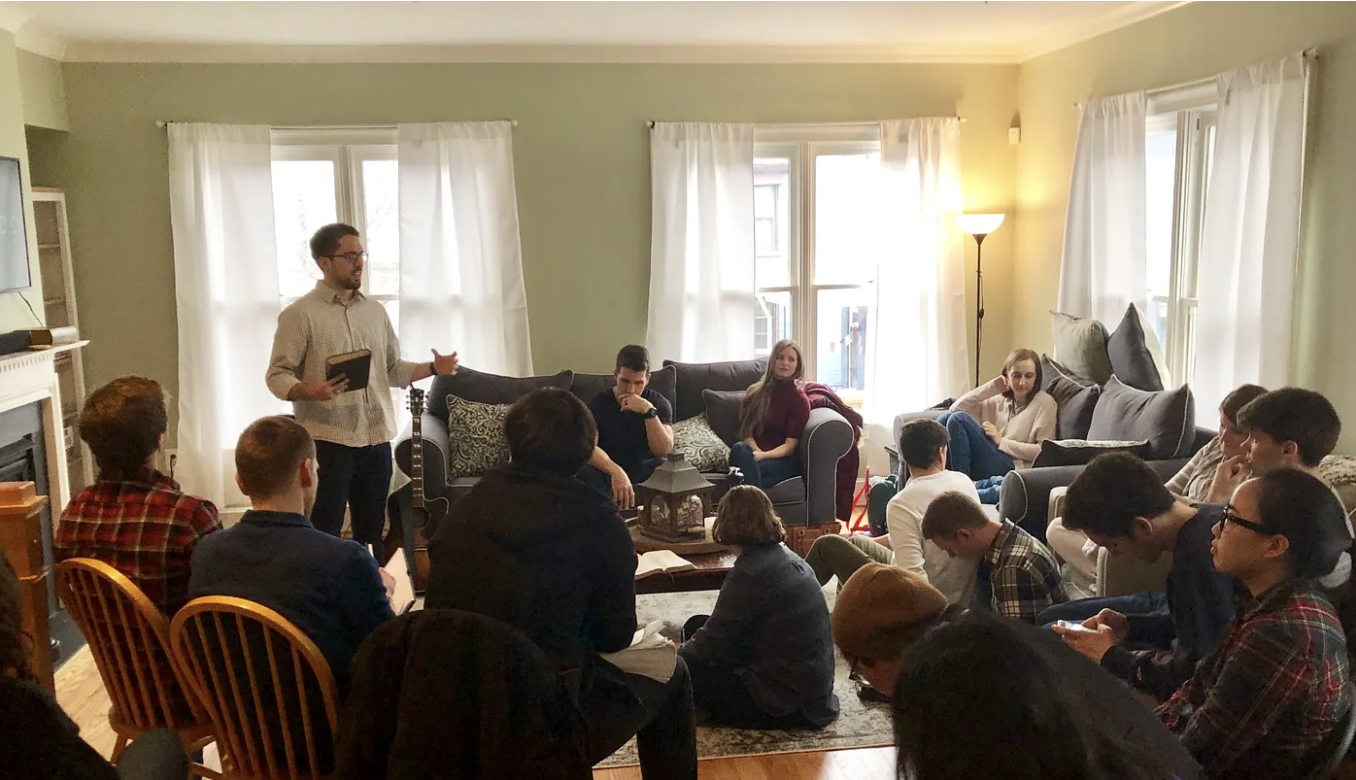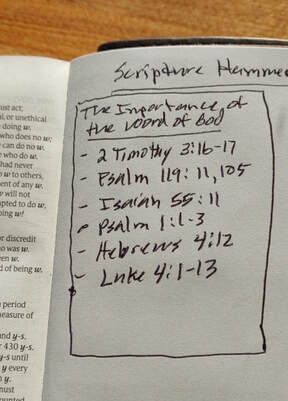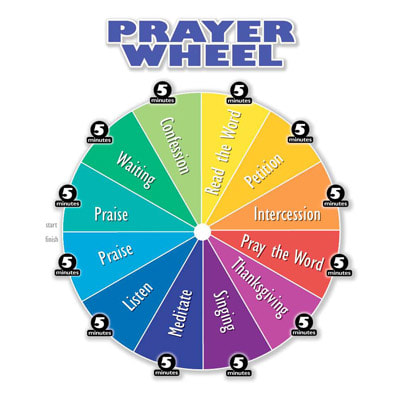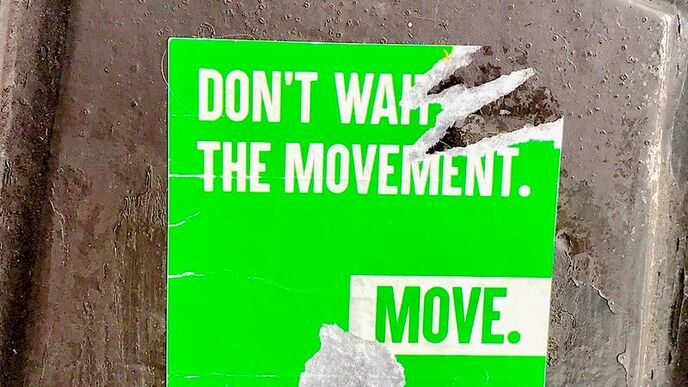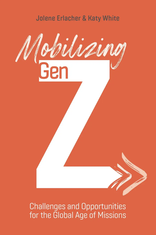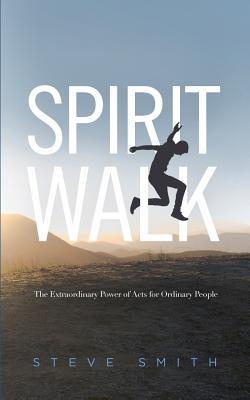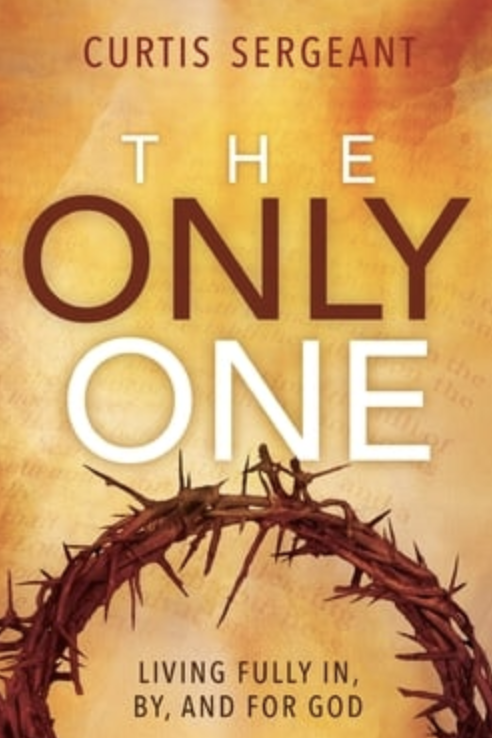|
Remember Covid? Pastors and churches across the country stepped into uncharted territory those first weeks of March and April in 2020. I prayed daily for my pastor friends and can only imagine the levels of stress that piled up around them as they led their respective churches through the Coronavirus crisis. With Sunday morning services needing to be cancelled, it left many scrambling to figure out how to do church. Because so much of what we do focuses on the Sunday morning service, this posed a very real challenge for church leadership. What do we do when our weekly hour and a half long service is no longer an option? That is the question everyone was wrestling with in those early months of the Covid crisis. I sometimes wonder now however if we missed an opportunity. It seems we've jumped back into business as usual and I'm wondering if there was another path to explore. I recently read an update from a Christian working in a Muslim majority country in Central Asia. They’d been working diligently alongside a local pastor to grow a small church made up of former Muslims. The group had found favor with a local property owner and had been meeting in a storefront building on Sundays for several years. Every Sunday the church of just over fifty gathered to worship together, to listen to the preaching of their very gifted pastor and to fellowship with one another. All that changed when the building owner began to come under increasing pressure from the local Muslim community. Even though he appreciated the monthly rent, he eventually decided it just wasn’t worth it and asked them to move out. What did they do when their weekly hour and a half long service was no longer an option? They didn’t have the option of streaming the pastor’s preaching and they knew they wouldn’t be able to find another building big enough for their needs. How could they go on? The pastor and elders met and realized that they were going to have to shift away from the larger group weekly gathering. They would need to meet in many smaller groups in peoples’ homes. Rather than centralized teaching, the teaching would need to be spread out among a number of young leaders. The pastor took the time he usually invested in preparing his sermon and instead began to invest that time in preparing men. While it has been a challenging time, it has also been a time of real growth. In the smaller group settings, people have found it easier to share, to interact and to practice the "one anothers" of scripture. Young leaders, given new responsibility and a lot more time with the pastor or an elder have matured quickly. One of the most exciting aspects of this shift to smaller groups meeting in homes rather than an official church building, is that members of the church have been more active in inviting their friends and neighbors to attend and non-believers have felt more comfortable to come and visit. More Muslims are both seeing and hearing the gospel than ever before and the church is growing - both spiritually and numerically. This church still finds a place to gather everyone together once each month for a larger gathering where they worship and celebrate and yes, listen to their pastor’s preaching. They are figuring things out as they have learned in a new, personal way the truth of Paul’s words in Romans 8:28, “And we know that all things work together for good to those who love God, to those who are called according to His purpose.” I hoped and prayed that the Coronavirus crisis would end quickly back in 2020. But I also prayed that God would shake up His church, refine us and teach us to walk in new, fresh (but very old) ways. I had hoped it would be an opportunity to learn from the church in Central Asia and China and Iran -- churches that cannot have large gatherings but rather come together in homes to “dedicate themselves to the apostles teaching and to fellowship, to the breaking of bread and to prayer.” Don't get me wrong - I love my local church family and our church and I don't think the legacy church is going anywhere or needs to. I just wonder if there are other ways to do church that more reflect Jesus' focus on disciple making rather than just a holy huddle. Are there hybrid models we can discover or create? Can we reimagine a church that is less about gathering and more about going? As I wrestle with scripture I suppose I'll always wrestle with these questions and my hope is that this article will help others begin to wrestle as well. Practical Handles Here are a few resources I’ve found helpful to begin to have a handle on how to help our congregations gather in smaller groups in homes.
The Coronavirus was challenging, there can be no doubt about that. It may be a challenge unlike any we've faced in our lifetimes though I suspect there will be more to come. It may not yet be the time to consider new ways of doing church in North America, but it seems there is an opportunity to discover new rhythms, new methods, new wine skins that may lead to greater levels of fellowship, faithfulness, disciple making, evangelism and maturity. And looking at the data coming out of the Barna Group and Pew Research, we could use greater levels of all of those. If you found this article helpful, pass it along to a friend who you think may benefit from reading it.
0 Comments
In Curtis Sergeant's book, The Only One, he suggests the discipline of writing poetry as part of our Bible reading. "Poetry is by nature a limiting form of expression. I find that it forces me to think deeply as I search for just the right word to convey the nuance I am contemplating." As I have immersed myself in the first few chapters of John these past few weeks I decided to give it a try and tease out the nuances of what I've been contemplating. It was a rich experience and forced me to wrestle with what I feel the Lord has been highlighting for me. Writing poems from my Bible reading won't become a daily discipline, but I'll certainly come back to it when I come across a passage of scripture that I really want to dig into. I'd encourage you to give it a try sometime. Here is my poem, "Come and See" that I wrote as I dug deep into John 1:29-51. It may not be great poetry but it certainly helped me meditate and learn from this passage of scripture.
I wrote about the idea of inviting people to come and see for themselves in last week's post, Come and See. You can read it HERE. Did you find this post helpful? Share it with a friend. If you have had the opportunity to listen to more than a few testimonies of people who were raised in lostness and came to faith, you have probably started to notice a couple of themes. One of those themes is the importance of a follower of Christ in their life. They met a Christian who through word or deed or both had an impact on their journey toward faith. Another that often comes up is the power of the word of God to bring conviction and give hope. In reading the Bible, they met a God who loved them enough to send his one an only son to save them from their sin, from fear and shame and from death.
In the scriptures, they met the living God. With this article, I want to provide tools to help you help your friends begin to explore the Bible and learn from the scriptures themselves. The Bible is both the greatest evangelistic tool that we have as well as the foundation for disciple making. Story Sets are apowerful tool to help your friends read the Bible. Story Sets A story set is a set of Bible stories that focus on a particular topic or theme. These can be used as a basis for exploring the Bible with your friend. Story sets are most often narrative in nature which allows pre-believers to enter into the story of the Bible and into discussion with you around the character and will of God. The purpose of story sets is to get people quickly into the scriptures, and to begin to teach them how to read the word of God. How To Use Story Sets As you connect with people who are far from God or if you are working with new believers, it will be natural to talk about the things that are important to our lives. There will be events in life that you will want to celebrate with your friends. There will be challenges in life that come up for which your friends will be looking for guidance. You will find yourself talking about the bigger questions of the meaning of life and the nature of God. Story sets give us a framework for introducing the word of God into these discussions. For example, let's say you are having a conversation with a young mother and she says, “I got into parenting before I was ready. Other people make it sound so easy. My mother just laughs. My grandmother says everything will be okay. But I’m trying to raise my kids without a map. Please help.” You could respond, “I’ve found a lot of guidance for parenting in the word of God. I’ve been so thankful that God gives us examples of parenting in the Bible. I wonder if you would like to read some of these stories together and see what we can learn from them.” You could then find or create a story set and read through a story each time you meet. Here is an example of a "New Parent" story set:
This particular story set finishes out by pointing not just to some good examples and lessons for parents, but with the story of Abraham and then the return of the prodigal son. Like this one, most story sets are evangelistic in nature, giving guidance for life while also pointing to Christ. One of the most commonly read story sets in the Muslim, Hindu and Buddhist world is Creation to Christ, a collection of stories, starting in Genesis, that give a general overview of the story of the whole Bible. Choosing The Right Stories How do we know which story set is the right story set to read with each of my friends? This is a discernment process that begins with prayer. Pray often for the opportunity to read the Bible with your friend. Pray for wisdom to know what stories in the Bible are the ones that will meet the felt needs of our friends and meet them where they are at. Choosing a story set also involves good listening. If we care about our friends, then we will be asking about their lives and as we get to know them, we’ll begin to hear the issues with which they are struggling. Then we can create or find an appropriate collection of Bible stories for their particular need. How To Read The Stories Isaiah 55:11 says, “When my word goes forth, it shall not return empty or void, but will accomplish the thing for which I sent it.” This is an amazing promise and it encapsulates why it is so important that we help our friends begin to read the scriptures. God will do the work! A process to read the Bible that missionaries around the world are finding to be fruitful is the Discovery Bible Study. It is a simple process that allows the Word of God and the Holy Spirit to be the main teachers. You don’t have to have all the answers but can trust that as you read the Bible with your friends, the Holy Spirit will guide them. It also begins the disciple making journey even before they come to faith as you model with them how to read the word of God and apply its teachings to your lives. [Learn more about Discovery Bible Study] The Discovery Process 1. Before you jump into the Bible story, be sure and spend some time connecting with your friend. How are they doing? How are their father and mother doing? How is work going? Spend time being with them. Don’t neglect this opportunity to extend hospitality. Share the week's highs and lows with one another. 2. Next turn to the passage. Read the passage aloud with your friend. Re-read it 3-4 times. Really! Re-reading helps ensure that they are actually getting into the passage. 3. Work together to retell the story in your own words. Don’t explain or interpret. Just retell the story. This provides an opportunity to make sure they are understanding the story and creates an opportunity to hear the story one more time. It also gives you and your friend practice in telling others the story. We want to be able to go home and say to a friend or family member, "Let me tell you the story I learned today." If in the process of your discussion your friend says something that is obviously not in the story, just ask the simple question, “Where do you see that in the passage?” 4. Next begin to discuss the following discovery questions:
5. Work together to think about what you can do this week to apply what you have learned in the passage. It can be helpful to actually write down an “I will . . . “ statement. 6. Spend time thinking about other people in your life who you could tell the story to this week. Ask, “Who can you tell this story to this week?” 7. Last question -- When can we meet again? Set a time to connect again and to read the next passage in the story set. Story Set Collection The following story sets are for you to use with your friends. Most are story sets that others have created and we have collected to share with you here. These should give you an idea of how you could create your own story sets to respond to the felt needs of your friends or disciples. 54 Trial DBS Series The parenting story set above comes from this great resource. I'd originally seen this collection of stories on a website which is no longer active. Thankfully my friend Chuck sent me a copy he received from a friend who was connected with Jerry Trousdale. This is a collection of 54 stores divided into nine major categories with six sets of six stories each. It is a really amazing resource. You can access this story set HERE. Creation to Christ - Long Version Beginning with Genesis, this study examines how God's plan of redemption unfolds throughout the Old Testament. It leaves the reader expectant for the fulfillment of the many prophecies found throughout the scripture. You can access this story set HERE. Creation to Christ - Short Version A modified, shorter version of the original Creation to Christ set. You can access this story set HERE. Stories of Hope A series of seven stories that introduce the reader to Jesus. You can access this story set HERE. Signs of John A series of seven stories that introduce the reader to Jesus. You can access this story set HERE. Learning to Follow Jesus A series of stories that allow you to disciple a new believer into the basics of following Christ. You can access this story set HERE. Other Story Set Resources
I've written often about the importance of immersing ourselves in the word of God and have shared tools for helping us do that well. Today I want to take one step back and share a short scripture hammer tool to help young believers discover the absolute importance the scriptures. The tools are great but if your disciple doesn't understand why they need to apply the tool, well, it may not do much good.
When I sit down to read these with my disciple - or a group of disciples - I read each passage two to three times aloud and then have the individual or the group summarize the basic message in their own words. I save the last passage - Jesus' confrontation with the devil in the wilderness - for last as a way to sort of watch Jesus apply the scriptures in His own life.
The goal is to help our disciples discover the joy, the benefit and the power of the scriptures in our lives. The sooner we can help them begin prayerfully engaging with the scriptures on a daily basis, the quicker they will grow toward maturity. If we really believe that the Holy Spirit will guide us - and them - into all truth (John 16:13) then we have to help them get into the scriptures trusting that the Holy Spirit will indeed disciple them into all truth. Do you have a young believer in your life who is struggling to get into the word daily? Find some time to sit down and work through these scriptures together. Do you have another scripture or story that you would include in the list? Share it in the comments below. Scripture List:
If you do take a disciple through this discovery study, let me know how it went in the comments as well. As we immerse ourselves in the story of the scriptures, we allow the Holy Spirit to use them to shape our view of the world, of ministry and of ourselves. Scripture hammer trainings allow a trainer to step out of the way and allow the Bible to do the heavy lifting of the training. They require little charism on the part of the trainer, are hard to argue with and place a tool in the hands of those we are training that is immediately reproducible.
The basic idea is to create a list of scriptures that all point toward the basic Biblical principle or lesson you are wanting your trainees to grasp. A scripture hammer study is best done in groups of 2-5 and then debriefed as a group. You can create your own for any topic you'd like to train on. I've created a one page handout with six scripture hammer studies that I've learned from others and that I've been using to train. The focus of these particular studies are:
[CLICK HERE TO DOWNLOAD THE SIX STUDIES] I've written previously about a few of these topic and you can check those out at the links below: In the 18th chapter of the book of Luke, Jesus encounters the rich young ruler. If you’ve been a follower of Christ for long, it is probably a familiar story. If not, stop and read it here. A devout man approaches Jesus wondering what he must do to be saved. Jesus walks through the commandments - have you obeyed these? The man replies confidently that he has kept the commands all of his life. And then Jesus does a curious thing. He asks the man to do one more thing: sell all that you possess and distribute it to the poor, and you shall have treasure in heaven; and come, follow Me. The story follows that, because the man was very wealthy he became very sad and presumably, walked away. Following Jesus is a tall order. My friend Justin uses this story in trainings to highlight the reality that Jesus isn’t looking for lukewarm Christians. This isn’t the only time that Jesus’ words and teaching drive away potential followers. There’s that crazy scene in John 6 where “many of his disciples turned back and no longer followed him.” Jesus is looking for committed disciples. He will build his kingdom not with crowds but with dedicated disciples. While the world yearns for numbers, Jesus is looking for committed men and women. Justin lays out what this commitment might look like using the great commission. He draws out five commitments from the passage and they provide a helpful rubric through which I can reflect on my own heart. I think they will be helpful for you as well. Then Jesus came to them and said, “All authority in heaven and on earth has been given to me. Therefore go and make disciples of all nations, baptizing them in the name of the Father and of the Son and of the Holy Spirit, and teaching them to obey everything I have commanded you. And surely I am with you always, to the very end of the age.” Five Commitments To Be A Disciple of Jesus
It starts with our willingness and commitment. If you are a leader, a good question to ask first is, "Am I willing?" but the next question has to be, "Are the people I am investing in willing?" Are they committed disciples or merely lukewarm attendees. You can fill the pews with the latter but Jesus wants to transform your community, your city, your state and nation - he will turn the world upside down with unschooled, ordinary men and women if they will commit themselves to living the surrendered life and being with Jesus. As we answer this question we can begin working toward the next question as well: Are they able?
It is no mistake that Jesus bookends his commission with authority and presence. I can do much in my own power but Jesus reminds me that unless I live the surrendered life which I can only do if I abide in Him and experience His presence, little of what I do will have any eternal impact. Justin leads a great ministry called Primary. He would love to come alongside you and coach you and your fellowship into the committed life of disciple making. Contact Justin For most of my life I’ve wanted to improve my prayer life. Having read the biographies of many great men and women of God and observing the Biblical examples from Jesus to Moses to the apostles, I’ve always known that prayer was an important part of the life of the disciple of Jesus. And for most of my life, I’ve not lived up to my own desires to pray more. The reality is that my knowledge of the importance of prayer has not yet led to a default toward prayer. But I want it to. Curtis Sergeant introduced me to a helpful tool to improve my prayer life, helping me to pray for one hour at a time. I don’t use it often enough but because it is a helpful tool, I’ll be adding it to the Everywhere to Everywhere resource page. The resource is called The Prayer Wheel and it is a part of the Zume Free Online Training. The prayer wheel allows you to pray in five minute increments for one hour. You will need some sort of timing device (Zume Timer) that you can set to let you know when five minutes is up so you can move on to the next section for prayer. THE BASIC PRAYER WHEEL OUTLINE
I have created a simple bookmark so that you can carry the prayer wheel with you where ever you go. Set aside an hour and spend it in prayer with the Prayer Wheel as your guide. Download the Prayer Wheel Bookmark I hope that you will find the prayer wheel a helpful tool for increasing your prayer life and your ability to hear from the Holy Spirit. It has been in many ways a helpful training tool for me but it will only help you if you try it out and apply it. Learn more about the Prayer Wheel from others: I remember growing up, my grandmother would tell stories of the waning days of the Great Depression and the first years of World War II. I was captivated by the way she and the whole country seemed to respond to the crisis of war and depression. She told stories not only of the young men who willingly signed up to defend freedom but also of the ways those who stayed behind stepped up to serve, sacrificially rationing and growing gardens and doing anything they could to support the war effort. Those stories left a longing in me to live a purposeful life of sacrifice and meaning. The Covid-19 pandemic is our crisis. For many of us, we are looking for purposeful ways to respond. Somehow, “stay at home and watch Netflix” just doesn’t seem all that meaningful, even though we know it is the best thing to do (at least the stay at home part). As followers of Christ then, what are the ways we can respond that are meaningful and in partnership with the mission of God. Nearly six billion people in our world do not yet call themselves Christians and over two billion don’t even have access to an opportunity to hear the gospel. Here are five different ways you can be a part of God’s global mission, even as you stay at home. LEARN As the global pause button continues to be depressed, take the extra time you have to learn more about God’s mission and how you can be a part of it. Here are several ideas:
ENCOURAGE Isolation and loneliness are real issues in a time of pandemic. I trust you are already doing your part to discover creative ways to encourage those in your neighborhood, your church family and your immediate family. But missionaries and our global brothers and sisters in Christ are also isolated in times like these. Here are a few ideas for encouraging them.
PRAY Too often, followers of Jesus underestimate the power of prayer. It seems that in the pandemic and the forced slowing of life, prayer would be the greatest response would could give to the Lord. Here are a number of resources to help you pray more.
GO Mission trips have been canceled, missionaries have had to return from the field and stay at home orders abound across the globe and yet the opportunity to go into the Muslim world has never been greater. Because of the Covid-19 pandemic, more people on every continent are home bound than ever in world history. They are isolated, alone, and wondering what tomorrow will hold. Hundreds of thousands of young Muslim men and women who speak English are also sheltering in their homes, smartphone in hand, surfing the Internet in search of answers, hope and friendship. What if they met you? Volunteer with Embassy and they will teach you how to connect online with Muslims in difficult to access nations. You will almost certainly be the first follower of Jesus they have ever met. Sign up for a free one hour introductory training or stop by the Embassy website to learn more. FILTER We live in a media saturated world. Messages come fast and furious from every device we own and many are wondering if we can trust any of the news we hear. How do we filter through all the nose? The reality is that we are all being discipled - being formed - by the messages that dominate our days. Because of this it is imperative that we shut off the noise and immerse ourselves in the word of God. As we do this, the word of God will increasingly become the filter through which all other messages have to pass. If the dominant source of messages in our day is our favorite right leaning or left leaning news outlet, it will become the filter, even filtering the way we read the Bible. Nobody is making you listen to the news or keep scrolling through your Facebook feed. Nobody is forcing you to not read your Bible. It’s a choice we all have to make. We have an opportunity to filter what we read, hear and see. As we do that and as we prayerfully seek God’s direction each day we will find the things we can do in this season of global pandemic and God will use us in his global purposes. "What can I do?" It's a question that Jesus' disciples all across the world are wrestling with during these unprecedented times. Covid-19 has locked us indoors and it seems the best way to love others is to stay away from them. These are indeed strange days. For many, you've spent the last years investing in the lives of friends who do not yet follow Jesus. You love them dearly. You've served them tirelessly and now, you can't see them. And so we ask, "Lord, what can I do?" For many the last years have been spent doing things for God. We serve the church. We help with programs. We feed the poor. We go to this event and that activity. We lead Bible study. We do, do, do. And so when the world comes to a halt, we ask, "Lord, what can I do?" For myself, this has been a journey into a lesson the Holy Spirit has been trying to teach me for the last few years. I'm a slow learner! I am by nature, a doer. Perhaps we all are. But in this moment, when "doing" has been in many ways stripped away, I've found myself wandering, wondering, worrying. Am I doing enough? Am I doing the right things? And who am I? The first week in particular was tough. I'd wander in and out of a sort of discombobulated haze, not knowing up from down, not knowing what I'd do with myself once I finished the next email I was writing or the call I was on. My "doer" was being battered and I didn't know what to . . . well, do. In it all I could hear the whisper of God in the distance, an inviting calm that, as the days wore on and my chaos subsided, I began to listen to and to recognize. Be my child. Be my friend. Be a member of my church. Be a citizen of heaven. Be my workmanship. Be my new creation. Be justified and righteous. Be secure in my hand. Be free from condemnation. Be with Me. Be with Me. Be with Me. How are you finding ways to simply be with Jesus this week? Dear Dads, It seems crazy to think that just two weeks ago life was relatively normal. Now, it seems that everything has changed. There is a lot of uncertainty and if you’re like me, you’re still not entirely sure what is going on. There is a lot that we are all going through and a lot that we all need encouragement in right now, but with this letter I want to encourage you to do one thing: lead on Sunday morning in your home. Covid-19 is and will continue to be disruptive and hard. But in every difficulty there is opportunity. God meant it when he had Paul pen the words of Romans 8:28, “And we know that in all things God works for the good of those who love him, who have been called according to his purpose.” The reality of “church at home” is probably going to be a reality for the foreseeable future. Our church leaders and pastors are doing a great job creating online content that can help us through this time. And while it's good to sit down in front of the TV or computer screen and watch and listen as a family, there is an amazing opportunity to step up and lead your family in being the church, in actively doing church at home. Jesus told us that “where two or three gather in my name, there am I with them.” Gather your family in the name of Jesus. Lead them in prayer and worship and in fellowship. This is an opportunity to teach your children to seek the face of Jesus, to model for them prayer and worship and what it looks like to be a man of God who looks to actively apply the teachings of Jesus. Help them learn to actively apply the teaching of Jesus in their lives. There is a simple format that can be followed that will help you lead your family. Divide your Sunday morning as a family into three thirds. Looking Back CARE: The first third of your time can be focused on caring for one another and worship. Start by praying for your time together and then ask two simple questions and allow everyone to share about how their week went.
After everyone has shared, invite your wife and kids to join you in praising God for the things that are going well and to pray for one another about the needs that were expressed. WORSHIP: Lead your family into a time of worship. Some of us are musically gifted, but for the rest of us this may mean asking your kids what their favorite worship songs are and finding them on Youtube to listen to or sing along with. It may be an opportunity to read some of the Psalms together. Regardless of what this looks like at your home, have fun worshiping the Lord together. If you have young kids, let them beat spoons on a pan or dance as they worship. CAST VISION: Is there a verse that has been particularly meaningful to you this week? Is there an area you are hoping you and your family can grow in? Take a moment to cast some vision for the things that God is putting on your heart for your family. Share a verse from the Bible to encourage your family in the way you know they need to be encouraged. Looking Up The second third of your time together can be spent looking into the word of God together. Acts 2:42 paints a picture of the early church saying "that they devoted themselves to the apostles’ teaching and to fellowship, to the breaking of bread and to prayer." This is the time to learn from the word of God. This would be a great time to tune into your church’s online service to listen together to your pastor’s message for the week. You could also use the SWORD method to lead your family in discovery Bible study, helping teach your kids how to dig into God’s word for themselves. Together you will learn what Jesus has for each of you in a particular passage of scripture. [learn about discovery Bible study] Regardless, this second third is a time to dedicate to studying the Bible. Looking Ahead The final third of your time together should be spent looking ahead to the week to come. It is a time to plan together how you can apply what you’ve learned and be a blessing to others in the coming week. A few simple questions for this time are:
After you have discussed these as a family, ask your kids to hold you accountable to actually do the things you’ve said you would do. End your time together by praying for your family. Then enjoy a great meal together! Covid-19 is going to be a life changing event for all of us. But as fathers we have an opportunity to step in and lead our families into a deeper place of faith and following. Imagine if our kids look back at this time and remember most of all that their dad led them closer to Jesus! May it be! |
The E2E Community
Categories
All
Good Books
Archives
April 2024
|
Proudly powered by Weebly

